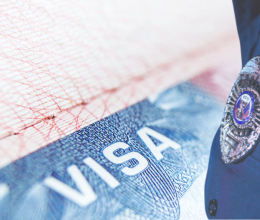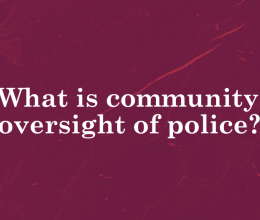
The ACLU filed a lawsuit on behalf of John Chinnici, who was unlawfully arrested, interrogated, and searched by Bennington police after they repeatedly pressured multiple witnesses and suspects to name him as an accomplice in a January 2016 armed robbery, despite the fact that Mr. Chinnici did not match witness descriptions and no other evidence connected him to the crime.
While still trying to get Mr. Chinnici named as an accomplice, Bennington police arrested Mr. Chinnici without probable cause, and went on to make multiple misrepresentations in their interviews with Mr. Chinnici and in their application for a warrant to search his phone. Mr. Chinnici was prosecuted based on evidence arising from these unlawful actions, though his resulting conviction was eventually thrown out. Mr. Chinnici now asserts that BPD officials and the Town of Bennington violated his federal and state constitutional rights.
On the morning of January 11, 2016, two masked men robbed employees of Martin’s Mini Mart, the latest of a string of unsolved robberies in Bennington. Police arrested Austin Mayhew on January 14, and he ultimately admitted to being one of the two robbers. Although the employees described the second robber as a Hispanic male with an accent weighing 170-190 pounds—characteristics that in no way resembled Mr. Chinnici—officers disregarded more likely suspects and immediately targeted Mr. Chinnici. BPD officers had already been harassing Mr. Chinnici, including stopping him without cause simply because he was “in [their] radar sights.”
After hours of Mayhew refusing to implicate Mr. Chinnici, BPD Chief Paul Doucette deviated from BPD policy and conducted an unrecorded and non-memorialized interview with Mayhew. Afterward, back on the record, Doucette implied that Mayhew had named John Chinnici specifically, which Mayhew denied. BPD continued pushing Mayhew to incriminate Mr. Chinnici, ignoring Mayhew’s invocation of Miranda rights and promising him leniency.
Despite the employees’ contrary description, Mayhew’s refusal to name his accomplice, and no evidence connecting Mr. Chinnici with the robbery, Doucette arrested Mr. Chinnici without probable cause. Mr. Chinnici was seized in front of family, handcuffed, and charged with the robbery. Doucette then returned to pressuring Mayhew, telling him “[Y]ou gotta be the one to officially say it. He had the gun. Not you.” After sustained pressure by BPD, Mr. Mayhew falsely identified Mr. Chinnici as his accomplice—approximately 30 minutes after Mr. Chinni had already been arrested.
After Mr. Chinnici had been unlawfully seized, Doucette interrogated Mr. Chinnici, telling him, “I’m not going to lie to you.” Doucette then told Mr. Chinnici—untruthfully—that a witness had identified him as the gunman by a unique facial tattoo, while Mr. Chinnici maintained his innocence. In addition, BPD officers made multiple misrepresentations in their application for a warrant to search Mr. Chinnici’s cell phone, including omitting key details from witness descriptions of the suspect that did not match Mr. Chinnici. The illegally obtained evidence was then used against Mr. Chinnici at trial.
Mr. Chinnici's case is not unique. An independent report by the International Association of Chiefs of Police (IACP) concluded in 2020 that the Bennington Police Department exhibited a “warrior mentality” and had lost the trust of many residents. The report was commissioned after revelations that Bennington officials withheld relevant evidence from then-Attorney General T.J. Donovan’s investigation into racial harassment of then-local resident and state legislator Kiah Morris, as well as multiple Vermont Supreme Court decisions concerning unlawful BPD traffic stops of Black motorists. The same year the IACP issued its findings and reform recommendations, the ACLU settled a racial profiling lawsuit against BPD, while another case—involving city officials’ retaliation against an interracial family who were targeted by BPD—is currently pending at the Human Rights Commission.
